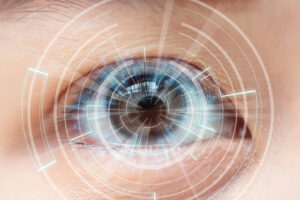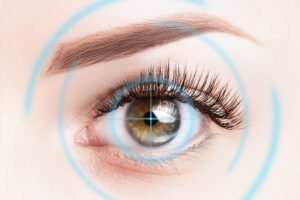
Everyone gets itchy eyes at some point. Indoor and outdoor allergies, wearing contact lenses, or bacterial or viral infections are going to make your eyes itch. Here’s how you can take care of this before it causes serious damage.
Allergies Are the Primary Cause for Itchy Eyes
For those with seasonal allergies, itchy eyes is an annoying rite of spring. If they live in places that don’t get a hard winter frost, eye itching can become a year-round problem.
Indoor allergies also trigger itchy eyes. They come from lots of sources, most often:
- Animal dander and saliva
- Dust and dust mites
- Insects, particularly cockroaches
- Mold
- Smoke
Outdoor pollen can easily get indoors, too.
Rubbing the eyes can damage them and won’t relieve the itch.
Wearing Contact Lenses Can Increase Eye Itching
People who wear contact lenses are susceptible to eye itching because irritants like pollen and dust can literally get stuck on the lenses. Dirty contact lenses can attract bacteria and viruses as well, which can easily lead to pink eye (conjunctivitis).
Some people are sensitive to contact lens solutions and have to shop around for one that’s truly hypoallergenic.
Identifying and Reducing Itchy Eye Triggers
One of the best ways to avoid or reduce itchy eyes is to literally clean up your environment. Clutter attracts and creates dust, a major cause of indoor allergies.
- Go through your junk mail regularly and toss out (or recycle if possible) papers, brochures, flyers, and cards you don’t need.
- Consider doing all your banking and bill-paying online. That cuts down on a lot of mail.
- Don’t leave clothes lying around for more than a day. After they’ve aired out, give them a good shake and put them away.
- Don’t ever leave food around. They can (1) develop mold and (2) attract vermin that can easily lay eggs and start off an infestation.
- Wipe down counters with a clean, damp cloth.
- Dust your home with care. Microfiber cloths catch the most dust. Lightly dampen with a cleaning solution. Don’t reuse a dirty cloth: wash it.
- Vacuum after you dust. Use a vacuum cleaner with a Hepa filter that traps smaller particles. Clean or replace it regularly and be sure to change dust bags or empty the dust chamber.
- Change your air conditioner/furnace or HVAC filters at least once a month. This will help them continuously catch more small particles and operate more efficiently, too.
- Use an air purifier if you have serious allergy problems.
- If your pets are an allergy source, give them a weekly bath and gently brush them every two or three days.
How to Treat Itchy Eyes
Treatment for itchy eyes depends on what’s causing the itching.
A clean, wet washcloth over your closed eyes can be a quick and effective treatment for itchy eyes caused by pollen, dust, animals, and other factors in your local environment.
Longer-lasting eye itching might only be relieved with over-the-counter oral allergy medications. Some have side effects, so it may be wise to talk to a pharmacist about eye drops or artificial tears. If these don’t work, your doctor may prescribe an anti-inflammatory eye drop or oral medication, or even a special eyelid cleaner.
Pink eye is usually caused by viruses and clears up on its own. If it doesn’t or gets worse, there may be bacteria in the eye. A doctor can prescribe an appropriate eye drop or solution to treat it.
Luckily, you can reduce the triggers for itchy eyes even as you treat them. Once you’ve had some relief, focus on controlling allergens that cause your eyes to itch.
Contact Us
If you have more questions about LASIK procedures, get in touch with us.
Related Blogs

Timing is Everything: When to Consider LASIK After Nursing for Optimal Results
Timing is everything when considering LASIK eye surgery after nursing, and understanding the optimal period for this procedure is vital for both mother and baby.

Cataract Surgery: Restoring Clarity and Confidence
Cataract surgery is a transformative procedure that offers a new lease on clear vision and renewed confidence. As cataracts cloud the eye’s lens, causing blurred

Intralase LASIK Explained: What to Expect Before, During, and After the Procedure
Intralase LASIK is a cutting-edge procedure that offers a safe, effective, and precise way to enhance vision compared to traditional LASIK methods. Understanding what to
